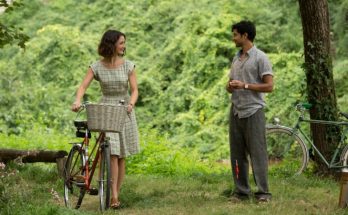In the Shadow of Freedom by Laxmi Tendulkar Dhaul evoked great interest after its first release at the Jaipur Literature Festival, 2013. It is a tender love story involving three people and takes us through Hitler’s Berlin and Gandhi’s India. But it is not another piece of fiction; it is the story of Laxmi’s own parents–a young journalist named Ayi Tendulkar, his Gandhian activist wife Indumati Gulati and legendary German actress Thea Von Harbou. Dhanya Nair catches up with Dhaul to find out more about this tender love story.
AGI: Your book is set in Hitler’s Germany and Gandhi’s India—momentous time in history. Tell us more about it.
LD: This story is about my father Ayi Tendulkar, who started his life as Vallabhbhai Patel’s secretary in Sabarmati Ashram in Gujarat, and was sent to study in the UK in 1920 and then Germany. While doing his PhD, he, who was by then a well-known journalist in Berlin, met and fell in love with Thea von Harbou, an actress, a filmmaker and ex-wife of another well-known filmmaker, Fritz Lang. The Nazi regime under Hitler, however, made life difficult for foreigners and on Harbou’s advice, my father returned to India, just before the Second World War broke out. On his return, he became involved with Gandhi’s campaign, and then with Harbou’s consent, married my mother, a fellow Gandhian. Caught up in the whirlwind of activism, they spent several years in jail. They stayed together as husband and wife only after they were released from prison, complying with a condition that Gandhi had put to their marriage. They had also promised Gandhi they would not have children until India gained independence.
AGI: What inspired you to write this story?
LD: For a long time, I thought that this story had to be written. It is the story of my family and I wanted to share it with everybody but I wasn’t sure how to go about it. I wasn’t sure whether to write it as fiction or a true story with a voice. I wasn’t sure whether the voice should be my mother’s or father’s or a third voice. Unfortunately, my mother passed away in 2006 and that served like a wake-up call. I knew then it had to be done quickly because everybody who was concerned was no longer there. So, that finally inspired me to pen the story. I started working on it and it was an exciting process.

AGI: Was it a difficult process to write about something so personal and close to your heart and putting it open for the world to see?
LD: Yes definitely but I was determined to share the story. I started working on research and collecting material in 2006. Most of the material was already there for instance Gandhi’s letter advising my parents to have kids only after independence or letters expressing his views on celibacy. Everything was in print. I had also grown up hearing my parent’s story; it was quite well-known and nothing was hidden from anyone. A few years before he died — When I was 18 or 19—I was sitting with my father and he began talking about the past and made a chronological chart of each year. This served as an important guideline for the book. Needless to say it was an emotional journey for me; while writing I could clearly imagine my parents—the way they spoke, their mannerisms. It prompted me to keep going.
AGI: How was it meeting Thomas Keneally (Schindler’s Ark which inspired Spielberg’s Schindler’s List)? Did you seek his advice?
LD: I met Thomas Keneally at the Jaipur Literature Festival couple of years ago. He is wonderful man. At that time, I was just gathering material. In case of Schindler’s Ark, Keneally met Poldek Pfefferberg, Holocaust survivor in his shop who gave Keneally the files with all the names. Keneally later went and interviewed the families mentioned. In my case, those who were all involved were not left so I was a bit apprehensive how to go about it. When I discussed my frustration with him, he advised me to continue writing and that the spirits of my loved ones will guide me. Looking back I think that’s exactly what has happened.





